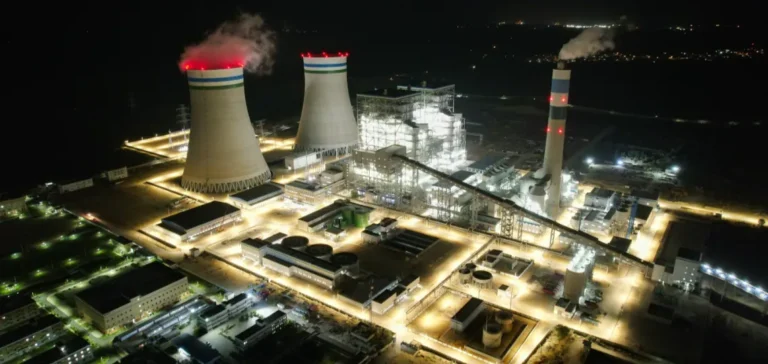Energy cooperation between China and Pakistan has reached a new milestone with the visit of Pakistani President Asif Ali Zardari to the headquarters of Shanghai Electric in China. This meeting highlights China’s growing role in Pakistan’s energy infrastructure through large-scale initiatives such as the Thar project, part of the China-Pakistan Economic Corridor (CPEC).
A $3bn project at the heart of the energy plan
The integrated Thar coal mine and power plant project, led by Shanghai Electric, is a cornerstone of the CPEC. It is the company’s first Build-Own-Operate (BOO) project, with a total investment exceeding $3 billion. The plant includes two 660 MW supercritical units and is supported by an open-pit mine producing 7.8 million tonnes of lignite per year. This infrastructure generates 9 billion kilowatt-hours annually, supplying electricity to nearly 4 million Pakistani households.
President Zardari praised Shanghai Electric’s contribution to reducing energy imports, noting that the project has saved billions in foreign exchange while significantly improving local living conditions. He also reaffirmed the Pakistani government’s commitment to enhancing the regulatory framework and addressing the concerns of Chinese investors.
Local skills development and technology transfer
Alongside technical investments, Shanghai Electric is focusing on local workforce development to ensure the project’s long-term sustainability. From September 10 to 19, the company hosted the second edition of the “Thar Project High-Quality Operation Elite” programme, offering Pakistani employees training in technical skills, business management, and cultural exchange.
The initiative forms part of an annual strategy to build a local talent pool to support ongoing operations. Participants visited Shanghai Electric’s production facilities, local power generation companies, and academic institutions in Shanghai, reinforcing bilateral exchanges in the energy sector.
Expanding the model across the region
With this experience, Shanghai Electric aims to replicate its approach in other energy-constrained countries. By combining turnkey Engineering-Procurement-Construction (EPC) capabilities, technology tailored to local resources, and an integrated development model with skills transfer, the Chinese company plans to scale its presence across South Asia and beyond.
The firm intends to leverage its expertise in clean energy systems and smart grid technologies to enhance regional interconnection and respond to the growing energy needs of emerging economies.






















